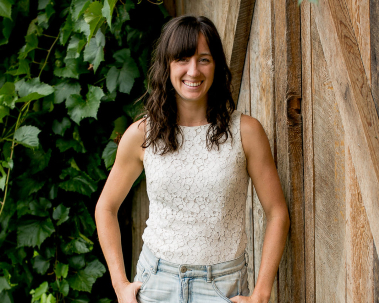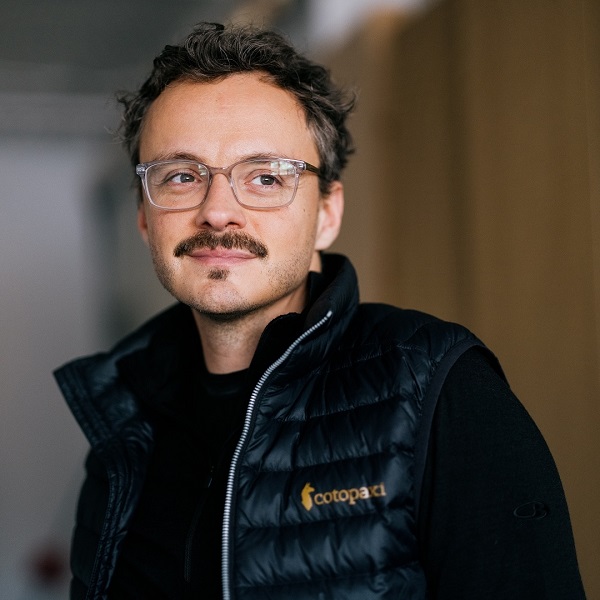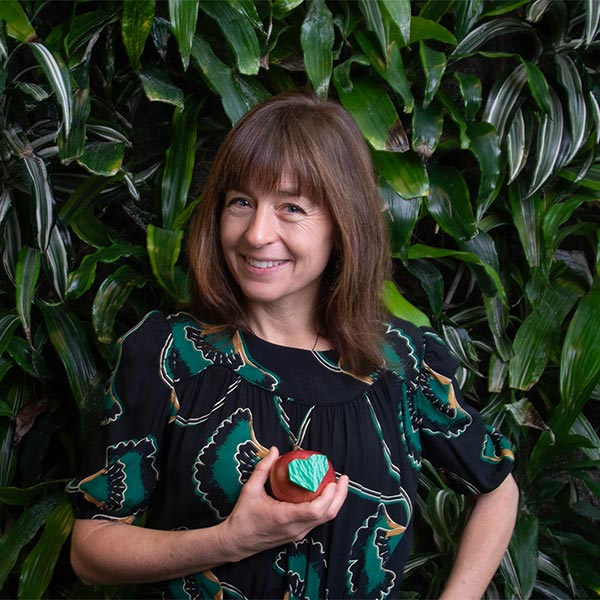When Brianne Miller, BSc’09, was working as a marine-mammal biologist, food was often on her mind. Not because she enjoys it (though she does), but because, everywhere she went, she saw ocean problems linked to how food is produced and moved.
While diving in places as far flung as Haida Gwaii and Borneo, she saw plastic, including bits of food containers, polluting the ocean. As a researcher in Vancouver, she studied how shipping noises hindered the ability of orcas to communicate and forage for food together.
“We rely on this global mass-shipped economy of food that travels around the world. From an environmental perspective, there are a lot of different problems that stem from that,” says Miller, co-founder and chief executive officer of Nada, Vancouver’s first package-free grocery store.
The 2,300-square-foot shop, which opened in June 2018, gives Vancouverites a chance to support a different type of food system: one in which food is selected, produced, and transported in a way that decreases its negative environmental impact.
When customers enter Nada, they find a weighing station and café on their left, tills on their right, and unpackaged products ahead. Assorted breads sit on wooden wall with pegs, while colourful produce, including fruits and vegetables from urban farms just blocks away, is piled in bins nearby. Customers scoop dry staples like coffee, beans, and flour, which are sold by weight, into Tupperware or other containers, while dispensing liquids like olive oil and molasses from metal kegs into their bottles and jars.
Almost nothing – with the exception of a few items like ice cream in reusable glass jars and toothbrushes in compostable boxes – is prepackaged. You can buy a bunch of coriander or a sprig, pick up a flat of eggs or just one, fill a container with frozen berries or grab a scoop. Miller wants customers to walk away with exactly what they need to minimize waste.
Bruised yams, pears, and other produce sit in a “perfectly imperfect produce” section, where they’re marked down 50 per cent. “Learn to love us!” a sign proclaims in a bid to urge shoppers to tackle global food waste, which contributes to eight per cent of greenhouse gas emissions. Nada’s zero waste café turns anything that doesn’t sell into soups, smoothies, and other dishes.
“We’ve been able to reduce the food waste from our grocery store to next-to-nothing,” says Miller. Nada discards less than one per cent of its food, compared to eight to 10 per cent for a typical grocery store. Consequently, Nada saves on hauling fees while turning produce into prepared food with higher profit margins. Nada also estimates it has diverted more than 250,000 containers from landfills.

As Miller (pictured left) developed her idea to open a store to support a “just food system,” she began testing the concept with popup shops in Vancouver and guidance from a business accelerator. More than a hundred people turned up to the first popup at a Patagonia store in 2015.
In addition to confirming public interest, the popups gave Miller and co-founder Alison Carr a chance to gather information, including data on what kind of containers people wanted to use, what products they wanted to see, and their price sensitivities.
The result is a grocery store unlike any other – right down to the way it sources its food. Miller’s team analyzes the environmental and social impact of every product on their shelves, while sourcing goods locally to minimize carbon emissions and arranging deliveries in reusable containers.
For example, Nada stocks coffee from East Van Roasters, a Vancouver company that obtains organic fair-trade coffee beans directly from farmers in developing countries, rather than going through intermediaries, to ensure farmers a reliable income. The company roasts their beans two kilometres away from Nada’s store, while employing women facing barriers to employment, and delivering coffee to Nada in reusable totes that Nada returns for refills.
Nada also works with companies that recover ingredients that would otherwise go into trash, like a company that makes soap from beef fat that butchers throw away, and a bakery that makes treats with spent grains from beer breweries.
“It’s not just considering [sustainability] in our store and for our consumers. It’s going all the way back to the farm, how the raw ingredient or the product is brought on,” explains Miller, who loved making the transition from science to business. Her data collection and problem solving skills have been particularly useful, she says.
Nada broke even ahead of schedule – just nine months after opening its doors and while contributing one per cent of its sales to environmental causes. In contrast, most retail stores take a few years to get to that point, says Miller, who is laying plans to open a second store and ultimately expand across the Pacific Northwest. She also hopes to advance conversations around “how business can be a force of good.”
“Businesses that do well for people and planet do well financially too,” says Miller.


